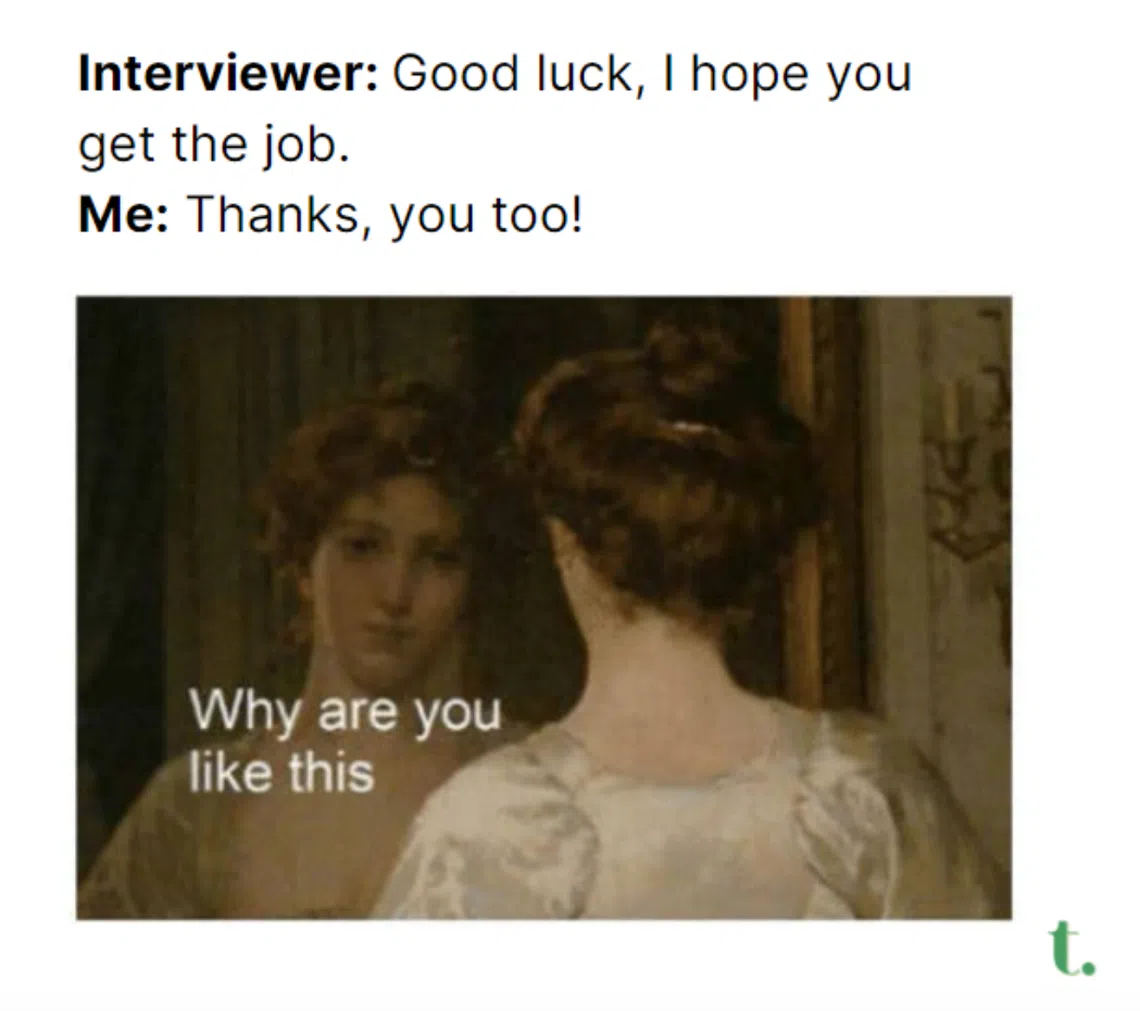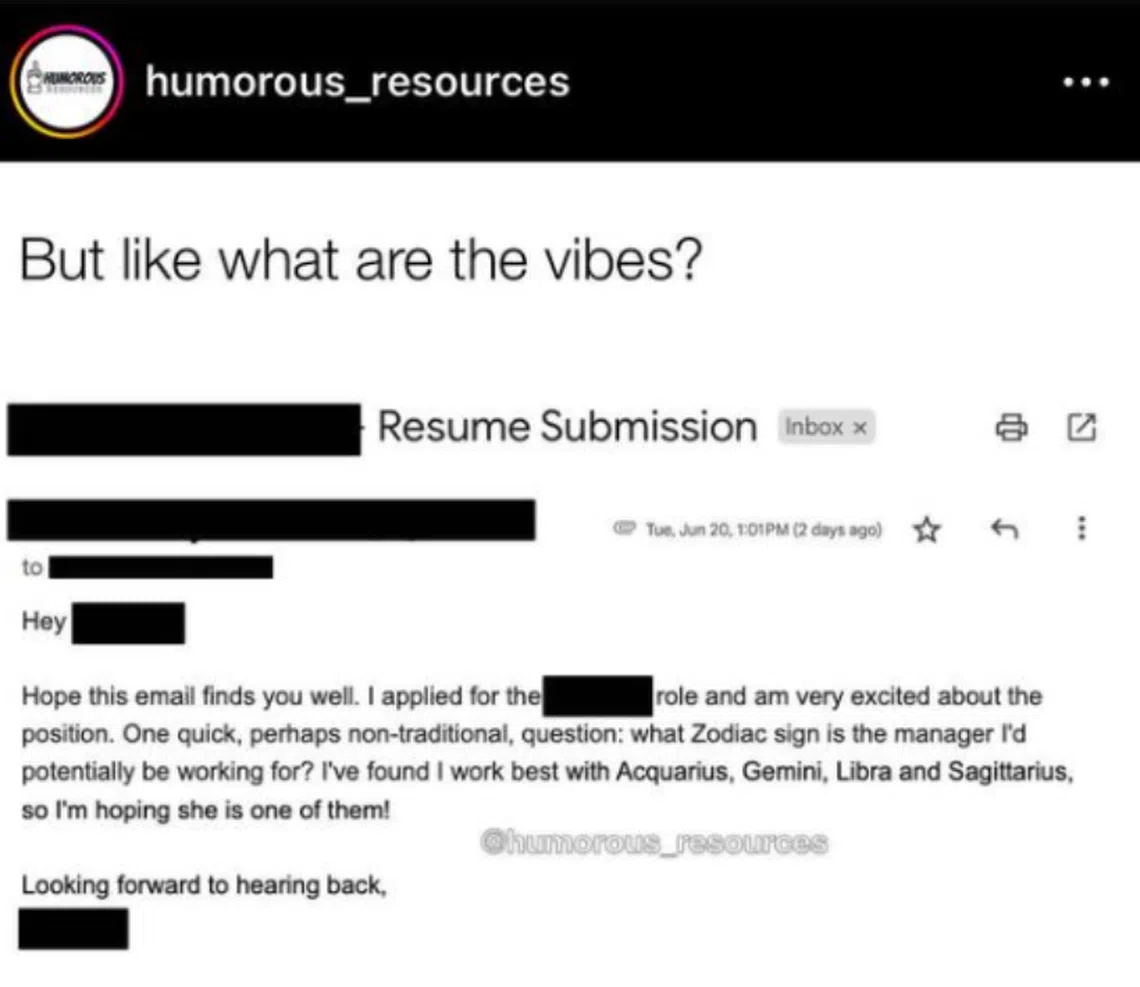🍞 Let’s get that bread

- Find out more and sign up for Thrive at bt.sg/thrive
🙋 ‘Any questions for me?’
After the 10-minute interview, I truly believed the interviewer had already decided whether to hire me when she said she had nothing left to ask me. After all, it was for an internship role so maybe such short interviews were normal for candidates with little prior work experience.
Then, when I told her I had no questions, she shot me a look that said: “Are you sure you have no questions for me?” 👀
Thankfully, I caught on and started asking her questions about the job, the company’s history and things I was genuinely curious about. Thinking back, it seemed like she wanted to learn more about me through the questions I had and to see if I was able to ask good questions – since I was applying for a journalism role, after all. We ended up chatting for another 20 minutes and I got the job.

The lesson of my story is: Whatever job you’re applying for, it’s important to always prepare your own questions. Employers want someone who cares about the job because it’s unlikely that someone who has no interest in the job is going to perform well.
“Asking questions during an interview is not only an opportunity to gather information but also a chance to demonstrate your interest, engagement and critical thinking,” Lin Peili, a career coach from Workforce Singapore, tells Thrive.
It’s also a chance for you to find out whether the job is the right fit for you, so treat it like a two-way conversation, she adds.
Navigate Asia in
a new global order
Get the insights delivered to your inbox.
Aarti Budhrani, director of recruitment firm Michael Page Singapore, suggests asking about the company culture, the responsibilities and expectations for the role, or any upcoming projects.
“It shows you’re serious about the position and ready to contribute to the team’s success,” she says.
🤓 Research to impress
A common piece of advice we hear is that we should do research on a potential employer before attending an interview. But what does that actually mean?
For starters, understanding a company goes beyond merely skimming through its website, Aarti says.
🥽 Dive deeper by reading about the company’s history, mission, values as well as its products or services. Check recent news, the company’s social media platforms, and employee reviews on sites such as Glassdoor.
This knowledge can help you articulate how you align with the company’s culture and goals.
Besides these tips, you can also do some industry research 🔎 – to learn about the trends, the challenges and the company’s competitors – that you can bring up to wow your interviewer, says Lin.
Talking to current or former employees before the interview can also give you valuable insider perspectives, she adds.
✅ Prepping for the obvious
No interview preparation is complete without anticipating, and coming up with, a response to potential questions.
Typically, interviewers like to ask behavioural questions, such as “Tell me about a time when…” These questions allow you to present your skills and experience through real-world examples, whether they took place in previous jobs or in school.
For such questions, Lin suggests answering using the CAR – context, action and result model.
Here’s an example: “Describe a challenging situation you faced at work and how you handled it.”
- Context: Give a summary of the situation, what the task was, and the challenge: “During the crisis last year, the food business was badly affected, and it had an impact on our sales.”
- Action: Elaborate on how you solved the challenge, including the actions you took: “Instead of waiting for direction, I decided to work with my team to come up with solutions such as price promotion and new recipes.”
- Result: Share the outcome and relate the learnings back to the job you are applying for: “The plan was approved and implemented. We managed to keep our sales while our competitors dropped by 30%.”

And then there are other frequently asked questions that you’d want to prepare for. Here are some tips from Lin on answering them.
“Tell me about yourself.
”Give a concise summary of your background, highlighting relevant experience, skills and accomplishments. Focus on how your past experience aligns with the requirements of the position you’re applying for.
“Why are you interested in this role/company?”
This is where you demonstrate what you’ve learnt about the company. Explain how your skills and career goals align with their mission, values or products/services. Emphasise what you can contribute to the organisation.
“Where do you see yourself in five years?”
Express your ambition and desire for professional growth. Mention how you would like to take on more responsibilities, develop new skills and make a meaningful contribution within the organisation.
Remember: Keep your responses concise and relevant so you don’t end up rambling during the interview. And rehearse them with a friend or by recording yourself until you can deliver them confidently!
TL;DR
- Having questions for your interviewer is a great way to show you’re interested in the job
- Research the company so you can impress your interviewer
- Prepare a concise and relevant response to commonly asked questions
- Practice, practice, practice!
Copyright SPH Media. All rights reserved.